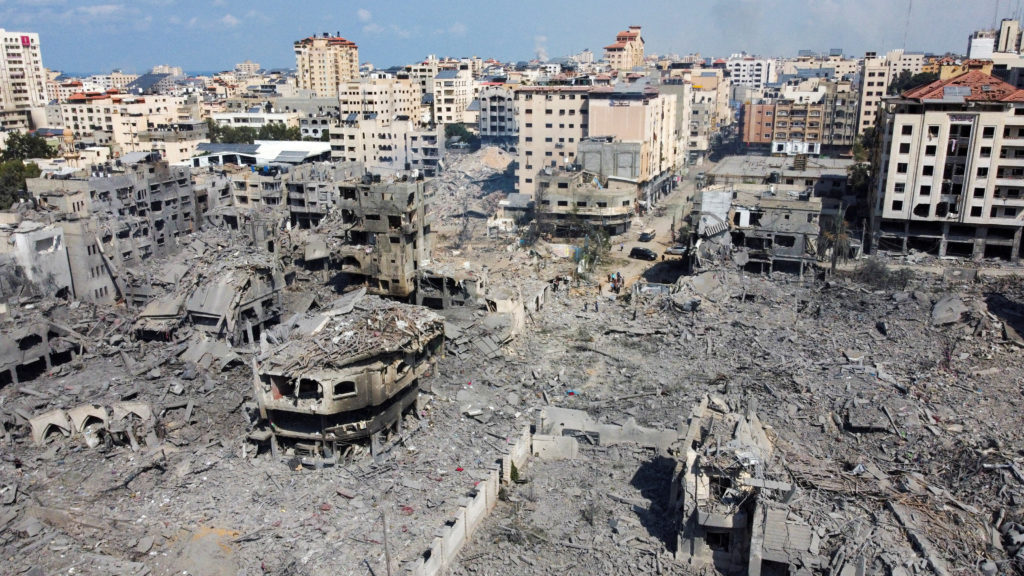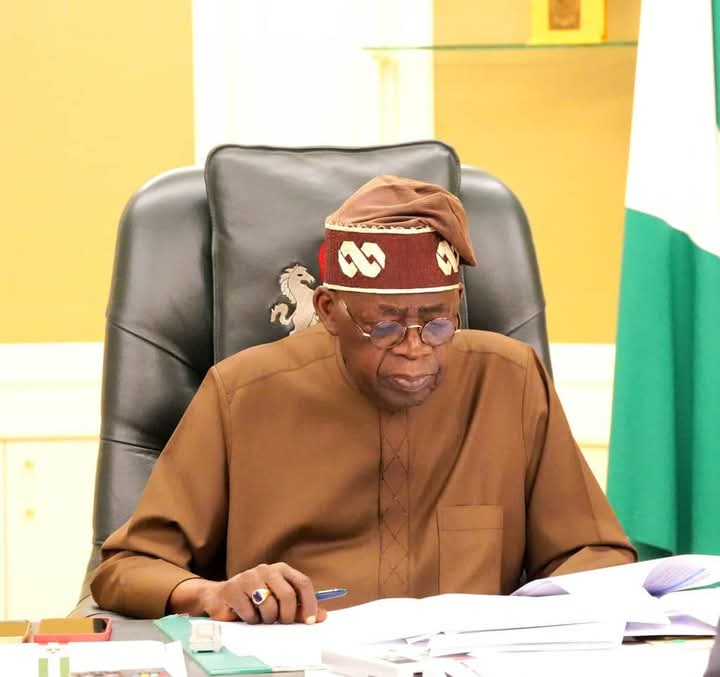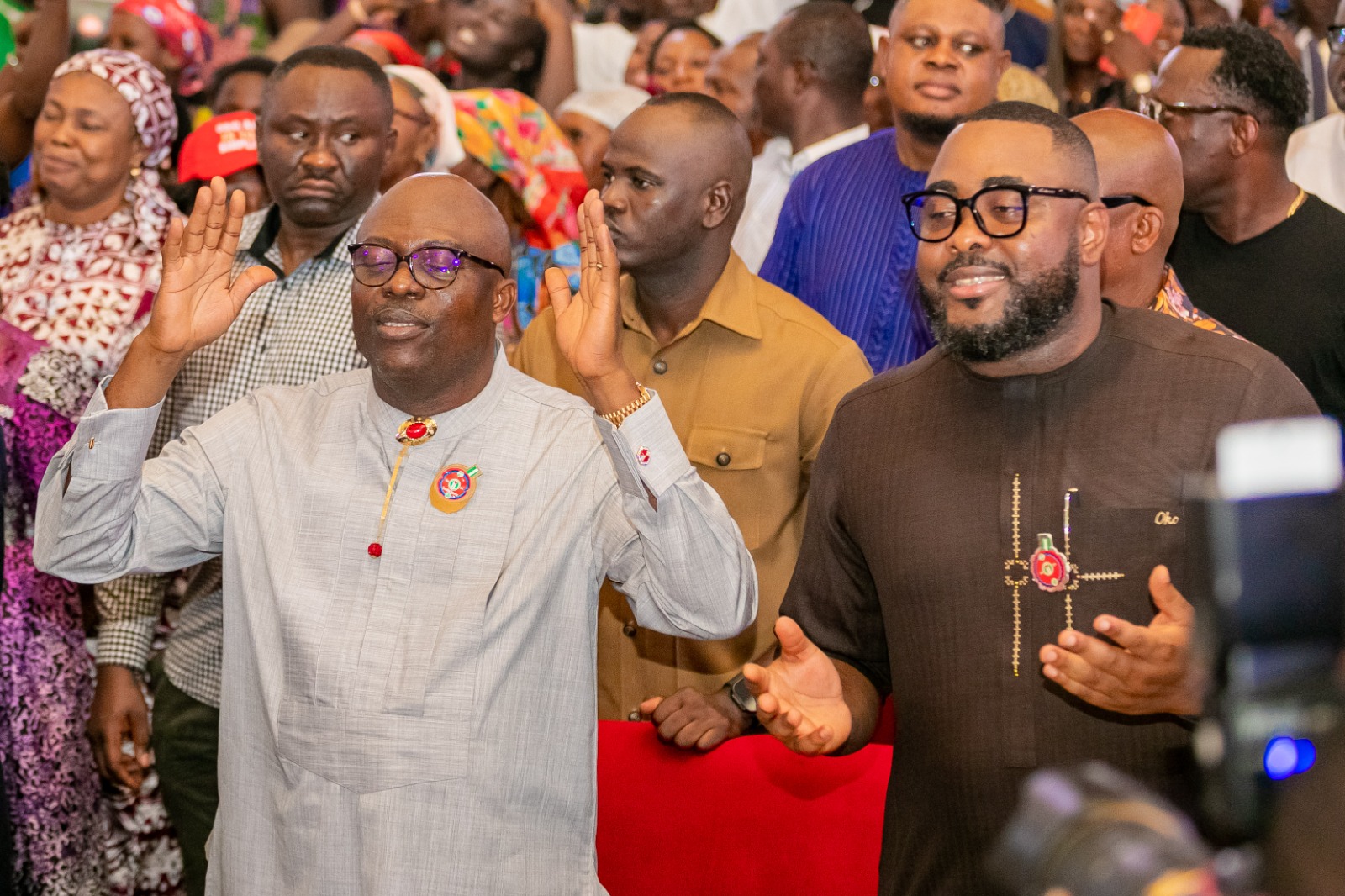Editorial
FG And Security Challenges
Since the last four months, the security situation in the country, especially in the North Eastern part, has been a serious cause for concern to many law-abiding Nigerians. Indeed, the spectre of bomb blasts and attacks on innocent Nigerians, resulting in colossal loss of lives, maiming, as well as destruction of property worth millions of Naira, are taking a frightening dimension.
Only last week, President Goodluck Jonathan summoned an emergency meeting with security top brass in the Presidential Villa, Abuja, with the aim of putting every machinery in place to checkmate the spate of bomb blasts and violent attacks on the citizens, particularly on government officials and institutions. The meeting came on the heels of a suicide bomb attack on Police Headquarters in Abuja, recently, by a group, allegedly linked to a fundamentalist religious sect, Boko Haram.
Before that daring incident, a number of dastardly bomb blasts had been unleashed on unsuspecting Nigerians and government institutions across some states in the North. On October 1, 2010, as Nigerians were celebrating the golden jubilee anniversary of the independence of the country, twin bomb blasts hit locations near the Eagle Square venue of the national event in Abuja, killing at least, 11 persons, and injuring some 35 others. Since then, bomb blasts have been recorded in other cities.
Specifically, in March, 2011, after a political campaign rally in Suleja, Niger State, a car bomb had exploded near the venue of the rally, causing stampede and severe damage to buildings nearby. Similarly, on the eve of the botched April 2, 2011 National Assembly elections, a bomb had detonated at the Independent National Electoral Commission (INEC) building, killing innocent Nigerians, including volunteer members of the National Youth Service Corps, recruited by the election umpire to conduct the April polls.
Between then and now, series of bomb blasts have ripped off buildings, killing law-abiding citizens, and raised tension across the land. In Zuba, within the precinct of the Federal Capital Territory (FCT), Zaria in Kaduna State, Mugadishu Barracks, Abuja, and a plethora of other explosions that had killed many in Borno State, are clear cases which quickly come to mind. From available records, Boko Haram has claimed responsibility for virtually all the bomb attacks from last March to the most recent attack on an eatery in Maiduguri, the Borno State capital, last Monday.
Boko Haram, we understand, is a fundamentalist Islamic sect demanding, the establishment of Sharia as the official legal system in 12 states in the North, an end to secular education system, and a government system that professes Islamism as fundamental principle of governance, among others. In fact, Boko Haram elements claim not to recognize democratic governments and institutions, and insists on extirpating any semblance of representative democracy in the North. They also want to eliminate the police, and other para-military institutions and personnel.
The Tide feels particularly worried at the level of sophistication, strategic deployment of weapons, mode of delivery and execution of the series of bomb attacks, and the daring impunity with which members of Boko Haram have carried out their uncanny and unpatriotic campaign against the state. To say the least, the Boko Haram tactics and strategy are serious threats to the security of Nigerians and the territorial integrity of the nation. Indeed, we are ashamed at the successful execution of the suicide bomb attack on the headquarters of the nation’s security agency. We are sad that the epicenter of agency responsible for the protection of lives and property of Nigerians was so masterfully attacked and police officers serving the nation killed by common criminals.
While we expect that every citizen has a right to profess his or her religion, demand and get his or her rights to good education, high quality healthcare delivery, shelter, employment, and security guarantees in an independent nation such as ours, we also feel that such rights must be gained in a decent fashion. But it is particularly important to remind perpetrators of the festering mayhem of the immutable fact that their rights end where other Nigerians’ rights begin.
For us, therefore, to canvass amnesty for such group of persons, who have not in any way requested for government’s olive branch or shown remorse for their acts of terrorism and treason against the Nigerian state, as some few elements have surreptitiously done, is unpatriotic and unnecessary. The presidential amnesty granted Niger Delta militants by the Federal Government was necessitated by the fact that the struggle was meaningful and anchored on the need to develop the region, engineer political inclusiveness, and promote justice, equity and fair-play within the polity.
This is why The Tide supports the Federal Government’s present joint military strategy as a means of crushing the menace of Boko Haram. We say so because we do not see the desire to further any reasonable and development-driven ideas and demands by Boko Haram. In fact, their demands are crassly antithetical to development, progress, peace and security.
We, therefore, insist that government must do everything within its powers to suppress the rising tide of violence, bomb blasts, unwarranted killings, maiming and destruction of property of law-abiding Nigerians in any part of the country. The joint military task force must rise to the occasion, and quell this tasteless menu served Nigerians. The police must also swing into action, arrest and prosecute those directly or indirectly linked to the spate of insecurity in the land, so as to serve as a deterrent to any criminal minds, planning a new offensive anywhere in the country.
The time has come for the security agencies in this country to truly show that they are on top of the security situation. This is the only way we can beat our chests to say ‘Nigeria is foreign investors’ choice destination’, in Africa. Otherwise, the government’s vision of making Nigeria one of the 20 largest economies in the world by 2020 could be a huge pipe dream. The security challenges are real, and the government must face them frontally. This is the truth!
Editorial
Israel-Gaza War: Sustaining The Ceasefire

Editorial
No To Hike In Telecom Tariffs

Nigerians are outraged by the Federal Government’s approval of a 50 per cent increase in telecommunications tariffs, with organised labour threatening to mobilise workers to boycott telecom services. The Nigeria Labour Congress (NLC) and the Trade Union Congress of Nigeria (TUC) have described the upcoming tariff as outrageous, lamenting that it will worsen the already harsh living conditions of workers and the masses.
Similarly, the Coalition of Northern Groups (CNG) rejected the hike, stating that it was ill-timed and did not take into consideration the struggles of Nigerians. The Human Rights Writers Association of Nigeria (HURIWA) also criticised the review, calling it an illegal, unconstitutional, and oppressive policy that undermines the fundamental rights and freedoms of Nigerians. It is a difficult moment for the industry.
Recall that the Nigerian Communications Commission (NCC) approved a 50 per cent increase in tariffs for telecom operators last Monday, instead of the 100 per cent raise that operators had requested. This decision quickly angered the consumers’ association, which criticised the government’s approval as not only punitive but also insensitive.
We wholeheartedly agree with the stance of labour and other groups on this very sensitive matter. We unequivocally condemn the 50 per cent increase in telecom tariffs. Though telecom operators cite higher operational costs and inflation as reasons for the hike, the timing and impact raise serious concerns in the current economic situation. It is a blatant attack on the well-being of the Nigerian worker and a betrayal of the people to corporate interests.
Telecommunication services are essential for daily communication, work, and access to information. However, the average Nigerian worker already spends approximately 10 per cent of their wages on telecom charges. For a worker earning the current minimum wage of N70,000, this means an increase from N7,000 to a staggering N10,500 per month or 15 per cent of their salary, a cost that is unsustainable.
This hike exemplifies the government’s apparent ease in prioritising corporate profits over citizens’ welfare. It is shocking that the government approved a 50 per cent tariff increase for telecom companies within a month, yet took nearly a year to approve the recent minimum wage for workers, despite the rising cost of living and inflation eroding purchasing power.
The questions are: When will the government stand up for the citizens it swore to protect? When will the National Assembly rise to its responsibility and hold the Executive accountable for policies that blatantly undermine the welfare of the majority? When will the common man finally heave a sigh of relief in Nigeria? We urge the government, the NCC, and the National Assembly to review the implementation of this ill-advised increase.
It is difficult to understand the state of mind of the managers of the nation’s economy. Sadly, these managers have alienated themselves from the reality of today. How can a government approve a 50 per cent hike in the tariff of telecom services when even the N70,000 minimum wage has been eroded by inflation, electricity tariff hikes, exorbitant fuel costs, transportation, and other social services?
Even if there is a need for an increase, why does it have to be 50 per cent? If, after dialogue, it is agreed that a raise is necessary, we should all consider a more reasonable increase rather than the 50 per cent hike. Fifty per cent is excessive and will only worsen the already harsh living conditions of workers, placing a heavier burden and more suffering on them and the general population.
The recognition of telecommunication services as essential components of modern society cannot be overstated. In an era characterised by rapid digital transformation, these services are fundamental not only for personal communication but also for facilitating broader socio-economic engagement. The proposed tariffs increase in the telecom sector raises critical concerns regarding equitable access to vital services that support communication, education, healthcare, and commerce.
In a democracy, the people should be the central focus of all government actions and policies. Every decision should aim to improve their quality of life. This plan must be carefully scrutinised with the welfare of citizens in mind. An increase in telecom tariffs will negatively impact many Nigerians, as the internet has become an essential tool for business, communication, and daily activities.
The Tide calls for the immediate suspension of the 50 per cent hike in tariffs. Instead, we recommend a more reasonable adjustment of a maximum of 10 per cent, which balances industry sustainability with the current economic realities in the country. We also demand that the NCC engages in genuine, inclusive consultations with consumer advocacy groups, civil society organisations, and other grassroots stakeholders before implementing any tariff adjustments.
Editorial
Hurray, Siminalayi Fubara Is 50!

Born on January 28, 1975, in Opobo Town, Mr. and Mrs. Joseph and Love Fubara welcomed their second of five children and first son. His father, a former soldier who completed an overseas training tour of duty, instilled in him a strong sense of discipline and dedication. His mother, a civil servant, taught him the importance of hard work and perseverance.
He received his primary education at Opobo Primary School and continued his studies at Comprehensive Secondary School in Opobo. His passion for numbers led him to pursue a degree in Accountancy at the then Rivers State University of Science and Technology, now known as Rivers State University.
Upon completion of his Bachelor’s degree, he pursued further education and obtained a Master of Business Administration (MBA) and a Master of Science (MSc) from the prestigious University of Port Harcourt in 2013 and 2016, respectively. Fubara’s dedication to his studies and his commitment to personal growth have shaped him into the accomplished individual he is today.
Sim, fondly called by his colleagues, started his career in 2003 as a principal accountant at the Rivers State Senior Secondary Schools Board. His dedication led to his promotion to Director of Finance and Accounts at the Government House in 2015. In March 2020, he was appointed Permanent Secretary and then became the Accountant-General of Rivers State on December 23, 2020.
His achievements are numerous, as he is a Knight of the St. Christopher (KSC) Order of the Church of Nigeria Anglican Communion. Additionally, he holds the prestigious traditional chieftaincy title of Amaopusenibo of Opobo Kingdom. The Governor’s commitment to family is evident through his marriage to Valerie Ibiere Fubara, with whom he shares three beautiful children.
Among Siminalayi’s other significant qualifications and accomplishments are his fellowship with the Nigerian Institute of Management and his fellowship with the Association of National Accountants of Nigeria (ANAN). He holds membership in the Chartered Institute of Forensic and Investigative Auditors. His impressive background has gained him the trust and support of the Peoples Democratic Party (PDP), leading to his victory in the party’s governorship primaries for the 2023 general elections.
Fubara embodies a leadership style defined by simplicity and compassion. He exhibits patience, confidence, and empathy in his interactions with those he serves. His humility and faith in God make him trustworthy. Representing the younger generation, Sim leads with the slogan “Consolidating and Continuing the New Rivers Vision,” focusing on developing infrastructure, healthcare, education, security, agriculture, and investment opportunities for Rivers State.
The bravery exhibited by His Excellency in resisting godfatherism has attracted respect from a wide array of Nigerians, Africans, and supporters of democracy around the world. He emphasises serving the interests of the people of Rivers over any godfather. His actions unify diverse groups in the state, promoting a sense of belonging among various ethnicities.
Our affable Governor exemplifies robust moral leadership rooted in his Christian beliefs. As a devoted Knight, he shows compassion and selflessness in his governance. He fosters an environment where all religions can peacefully coexist. Fubara sponsored Muslim pilgrims for the 2024 Hajj and personally wished them well, encouraging them to pray for the state and Nigeria. His religious tolerance has earned him respect among Nigerians who value coexistence.
Moreover, the Governor’s appealing physique and charming smile have garnered admiration from many Nigerians, who view physical beauty as a reflection of inner qualities. His tall stature has solidified his status as a revered figure, commanding respect across the nation. Fubara has shown dedication to women’s issues by initiating several programmes in collaboration with the Women Affairs Ministry and the Office of the First Lady, highlighting his strong commitment to women’s empowerment and gender equality.
Sir Fubara has focused on actively involving young people in his governance by launching entrepreneurship and training schemes, notably the Rivers State Youth Empowerment Scheme. His efforts to support youth have earned him the backing of many young Nigerians. Additionally, he provides scholarships and makes donations to orphanages, demonstrating his commitment to investing in education for the benefit of children in the state.
Known for his strong commitment to national unity, this Governor reaches out to Nigerians from various backgrounds. As a state Governor, he demonstrates great nationalism by supporting citizens from other states, especially in Rivers. He respects the rule of law and democratic values, which has enabled past local government chairmen to complete their terms without issues. His effective management of Rivers State’s resources promotes transparency and accountability.
Despite facing numerous distractions, the Rivers Chief Executive has made remarkable strides in steering the state’s affairs, reflecting his unwavering focus and commitment to delivering results. He has encountered challenges but remains dedicated to his vision for a better state. His peaceful and caring leadership style has made him popular, inspiring new leaders to emulate similar qualities. By being strong yet compassionate, he has redefined the concept of leadership. Fubara’s selfless nature prioritises the state’s needs above his own. This has earned him widespread support.
As he commemorates his Golden Jubilee birthday today, even the most ardent critics, adversaries, and accusers cannot overlook that he embodies a worthy precursor in every sense.
Happy Birthday, His Excellency!
-
News15 hours ago
RSU Lecturer Unveils Research Innovation On Soap Production
-
Nation14 hours ago
Commissioner Inaugurates Street Lights In 16 Communities
-
Niger Delta15 hours ago
ThisDay award, Affirmation Of Oborevwori’s Performance — Commissioner
-
Sports13 hours ago
NCF targets success after W’Cup outing
-
Politics15 hours ago
Controversy As Ondo Dep Gov Allegedly Incurs N130m Hotel Bill In One Year
-
News15 hours ago
FG Unveils National Broadband Alliance To Drive Internet Access
-
Nation14 hours ago
Anglican Church Inaugurates New Deanery In Etche
-
Niger Delta15 hours ago
D’Gov Emphasizes Agriculture In Industrialization … Tasks LG Health Authorities On Discipline

